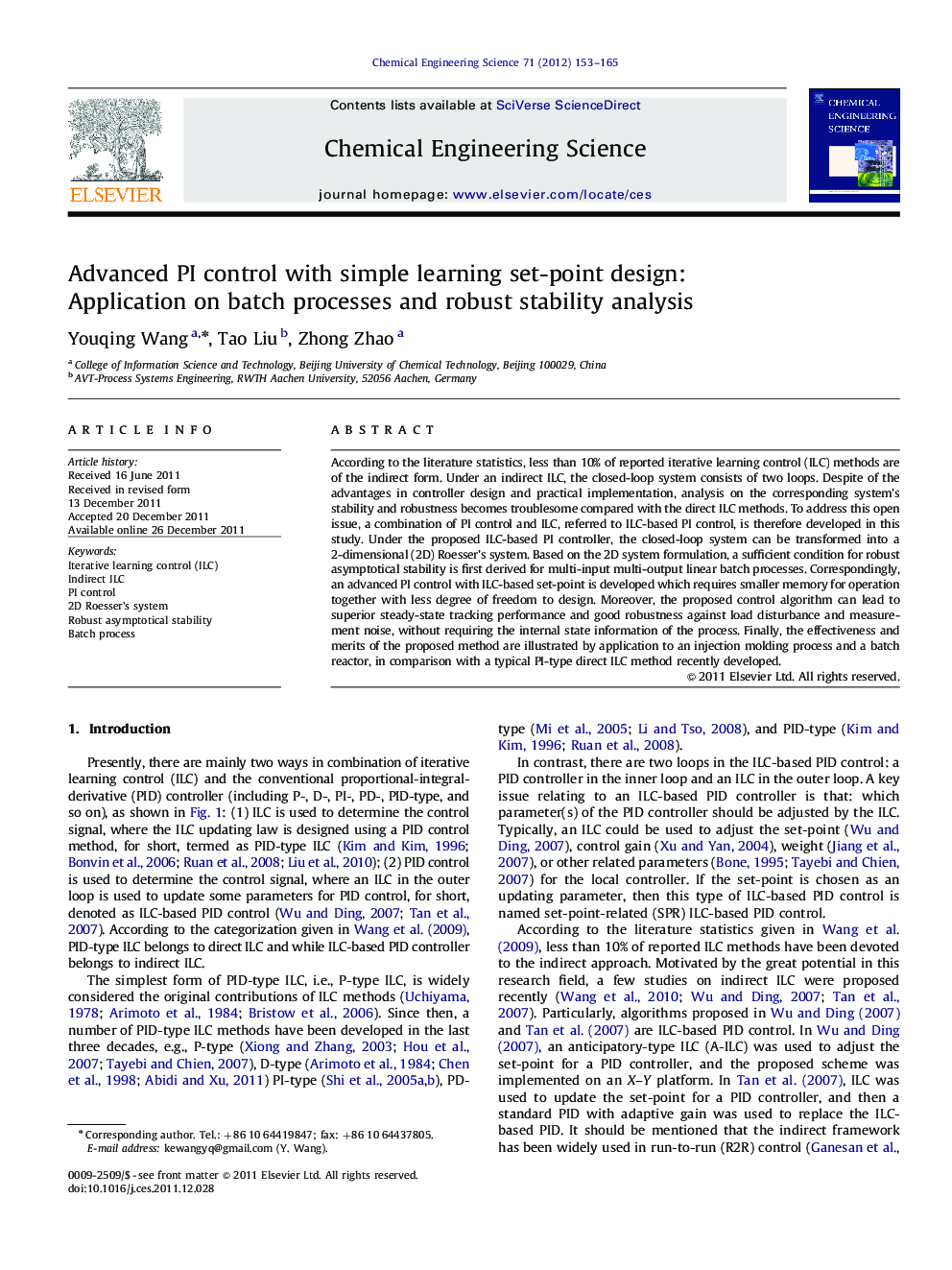| Article ID | Journal | Published Year | Pages | File Type |
|---|---|---|---|---|
| 155747 | Chemical Engineering Science | 2012 | 13 Pages |
According to the literature statistics, less than 10% of reported iterative learning control (ILC) methods are of the indirect form. Under an indirect ILC, the closed-loop system consists of two loops. Despite of the advantages in controller design and practical implementation, analysis on the corresponding system's stability and robustness becomes troublesome compared with the direct ILC methods. To address this open issue, a combination of PI control and ILC, referred to ILC-based PI control, is therefore developed in this study. Under the proposed ILC-based PI controller, the closed-loop system can be transformed into a 2-dimensional (2D) Roesser's system. Based on the 2D system formulation, a sufficient condition for robust asymptotical stability is first derived for multi-input multi-output linear batch processes. Correspondingly, an advanced PI control with ILC-based set-point is developed which requires smaller memory for operation together with less degree of freedom to design. Moreover, the proposed control algorithm can lead to superior steady-state tracking performance and good robustness against load disturbance and measurement noise, without requiring the internal state information of the process. Finally, the effectiveness and merits of the proposed method are illustrated by application to an injection molding process and a batch reactor, in comparison with a typical PI-type direct ILC method recently developed.
► A novel combination of PI control and ILC is developed in this study. ► ILC-based PID has two loops: a PID in the inner loop and an ILC in the outer loop. ► The closed-loop stability and robustness issues still remain open for indirect ILC. ► A sufficient condition for robust asymptotical stability is derived. ► Superior steady-state tracking performance without using the internal state.
